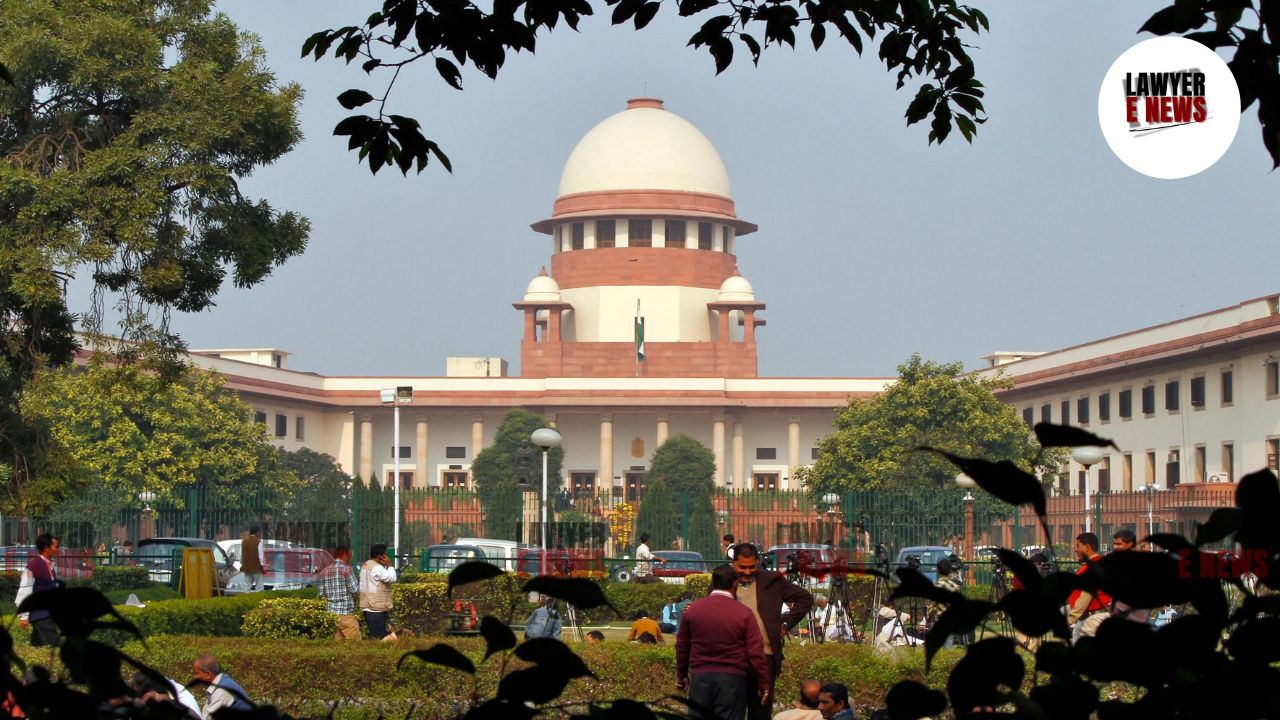-
by Admin
16 February 2026 1:47 PM



“When a person has died… and a charge-sheet has been filed, the insurance company cannot escape liability merely by casting doubt on an eyewitness.” - In a notable ruling delivered on April 7, 2025, the Supreme Court strongly rebuked the High Court of Telangana for exonerating an insurer in a fatal road accident case. The Court restored the Motor Accidents Claims Tribunal (MACT)’s ₹33.63 lakh compensation award to the victim’s family, ruling that suspicion over witness credibility does not absolve insurer’s liability without proving breach of policy.
The bench comprising Justices Ahsanuddin Amanullah and Sudhanshu Dhulia emphasised that the insurer must show actual violation of policy terms to escape liability — “the insurance company cannot be said to have been successful in establishing that it was not liable to pay for the accident”.
“FIRs are not Encyclopaedic… Investigation Must Uncover Offending Vehicle,” SC Cautions Against Rigid Interpretation of Initial Police Reports
The case arose from a tragic incident on March 20, 2011, when K. Yadagiri, riding his Bajaj scooter, was hit from behind by a speeding Hyundai Verna (Reg. No. AP 29 AE 3763) near Taranaka in Hyderabad. He succumbed to injuries shortly thereafter. His widow and children approached the MACT, which awarded ₹33.63 lakh with 7.5% interest, holding the owner and insurer jointly liable.
However, the High Court, relying on perceived delay and inconsistency in eyewitness testimony, especially the conduct of PW2 (who disclosed the car’s registration number 2.5 months later), set aside the award as against the insurer. The Supreme Court reversed this finding, stressing: “The mere fact that initially the FIR records the vehicle as unknown would not be fatal for the prosecution/claimants... the connection of the accident with the said vehicle has to be based on cogent and reliable evidence.”
“Owner Never Appeared Before Any Court… Driver Admitted Guilt During Police Call”: Supreme Court Finds Negligence Proven on Preponderance of Probabilities
While acknowledging some doubt over the delayed statement of the eyewitness, the Supreme Court noted several compelling facts that weighed in favour of the claimants:
The police had filed a charge-sheet against the driver of the Verna.
Mechanical inspection reports confirmed damage to the Verna’s front bumper.
Most critically, the vehicle owner never appeared before MACT, High Court, or Supreme Court — and when approached during police investigation, his own driver confessed to the accident.
“Respondent no.2 [owner] had given a statement to the police to the effect that he was not aware of the accident… When the owner telephoned the driver, he confessed to his guilt.”
The Court sharply noted that the insurer did not even allege violation of policy conditions, and therefore, had no legal ground to escape liability.
“Standard in MACT Claims Is Not Beyond Reasonable Doubt… Preponderance of Probabilities Is Sufficient”: Apex Court Reaffirms Long-Standing Principle
The judgment reinforced the settled legal position that motor accident claims are not criminal trials. Citing Mangla Ram v. Oriental Insurance Co. Ltd., (2018) 5 SCC 656, the Court clarified that negligence must be evaluated on the basis of probabilities, not strict proof:
“The filing of a charge-sheet against the driver prima facie pointed towards his complicity… The High Court erred in expecting criminal trial-level proof in a civil claim proceeding.”
Even if the eyewitnesses were imperfect, the cumulative evidence — investigation, physical damage, owner’s silence, and driver's confession — pointed unmistakably to liability.
MACT Award Restored, High Court Ruling Set Aside — Family to Receive ₹33.63 Lakhs Plus Interest
The Supreme Court allowed the appeal, restored the MACT’s award, and made it clear that this judgment was delivered on the peculiar facts of the case. It cautioned that the insurer’s attempt to dodge liability by highlighting evidentiary doubt — without any breach of policy — could not be accepted:
“Given the peculiarities of the case coupled with the over-arching need to render substantive justice… the insurance company cannot escape liability.”
No costs were imposed. The Court also noted its observations would not influence the pending criminal proceedings.
Date of decision : April 7, 2025
